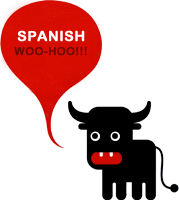Writing a Spanish Cv
One of the best tools that you can prepare before embarking on your adventure to Spain is to already have a copy of your CV in Spanish and adapted to the Spanish job market. Not only does this mean that you will have one to hand should it ever be required, but it can also stand as proof as your language skills, no matter how basic they may be, and your eagerness to learn.

Although CVs in Spain are practically the same as those you would use in your home country, there are a number of vital pieces of information that employers are looking for in particular. In Spain it is completely acceptable for employers to want to know your marital status (estado civil) and date of birth (fecha de nacimiento) as well as whether or not you have children, so it’s better to put this kind of information in the opening section of the CV. A passport sized photo is also generally required along with any CV you send out and it is advisable that you always have one attached; it will make your application stand out.
Along with listing details of your past education and studies, it is also vitally important that you provide as much information about any work experience or past jobs that you may have had. Try to keep the content to a paragraph at most per position but ensure that you mention any responsibilities or tasks that you completed for each job. Make sure that at least two of the positions listed are willing to provide references should you need them.
Languages are also particularly important to mention on your CV and are sometimes one of the most important factors an employer will look for. Having a second language can boost your employability so you should list which languages you can speak or understand and to what level from ‘basic conversational’ to ‘native’. Information regarding any classes or qualifications that you may have in any language should also be listed here.
One of the most important things to remember when translating your CV into Spanish is accuracy. Although most of the content will include short phrases and key words, it is important that these are written well, especially because your CV is the first thing that your employer will see. Because of this, if your level of Spanish isn’t great or you feel unsure, it’s always better to get it checked over either by a tutor or fluent Spanish speaker before sending it off to prospective companies.
For more tips about writing a Spanish CV visit here.









